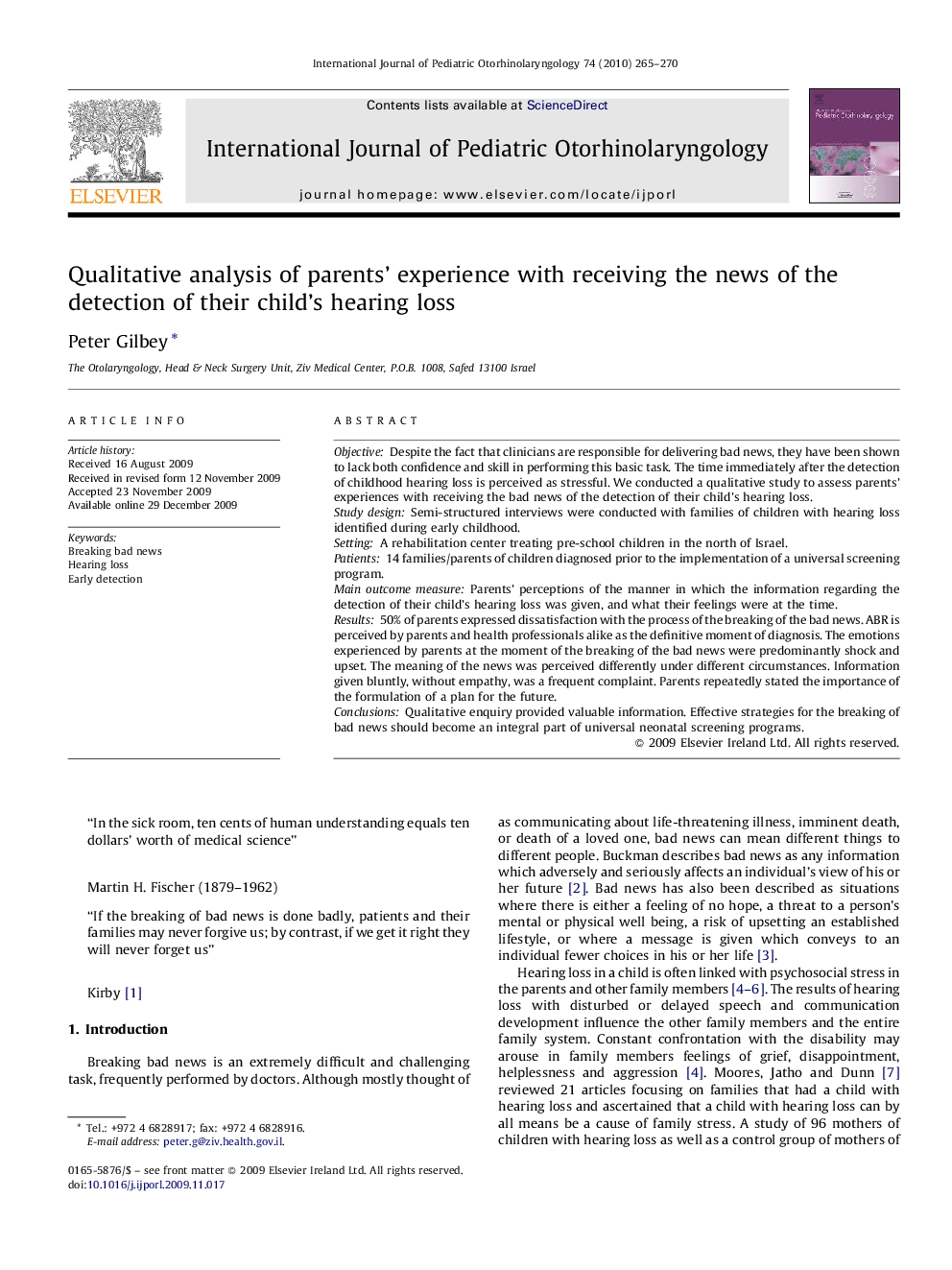| Article ID | Journal | Published Year | Pages | File Type |
|---|---|---|---|---|
| 4114205 | International Journal of Pediatric Otorhinolaryngology | 2010 | 6 Pages |
ObjectiveDespite the fact that clinicians are responsible for delivering bad news, they have been shown to lack both confidence and skill in performing this basic task. The time immediately after the detection of childhood hearing loss is perceived as stressful. We conducted a qualitative study to assess parents’ experiences with receiving the bad news of the detection of their child's hearing loss.Study designSemi-structured interviews were conducted with families of children with hearing loss identified during early childhood.SettingA rehabilitation center treating pre-school children in the north of Israel.Patients14 families/parents of children diagnosed prior to the implementation of a universal screening program.Main outcome measureParents’ perceptions of the manner in which the information regarding the detection of their child's hearing loss was given, and what their feelings were at the time.Results50% of parents expressed dissatisfaction with the process of the breaking of the bad news. ABR is perceived by parents and health professionals alike as the definitive moment of diagnosis. The emotions experienced by parents at the moment of the breaking of the bad news were predominantly shock and upset. The meaning of the news was perceived differently under different circumstances. Information given bluntly, without empathy, was a frequent complaint. Parents repeatedly stated the importance of the formulation of a plan for the future.ConclusionsQualitative enquiry provided valuable information. Effective strategies for the breaking of bad news should become an integral part of universal neonatal screening programs.
